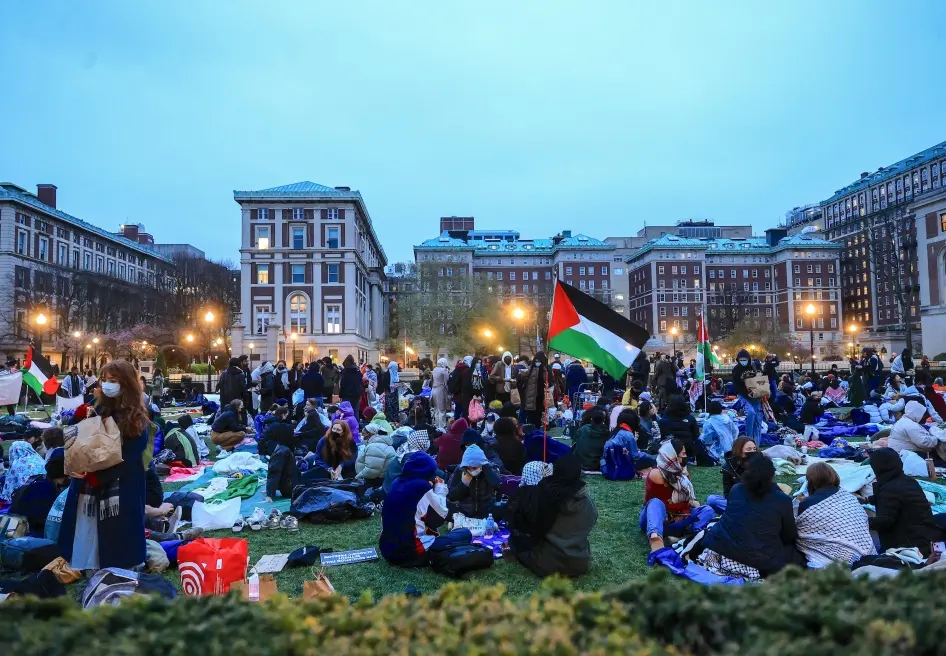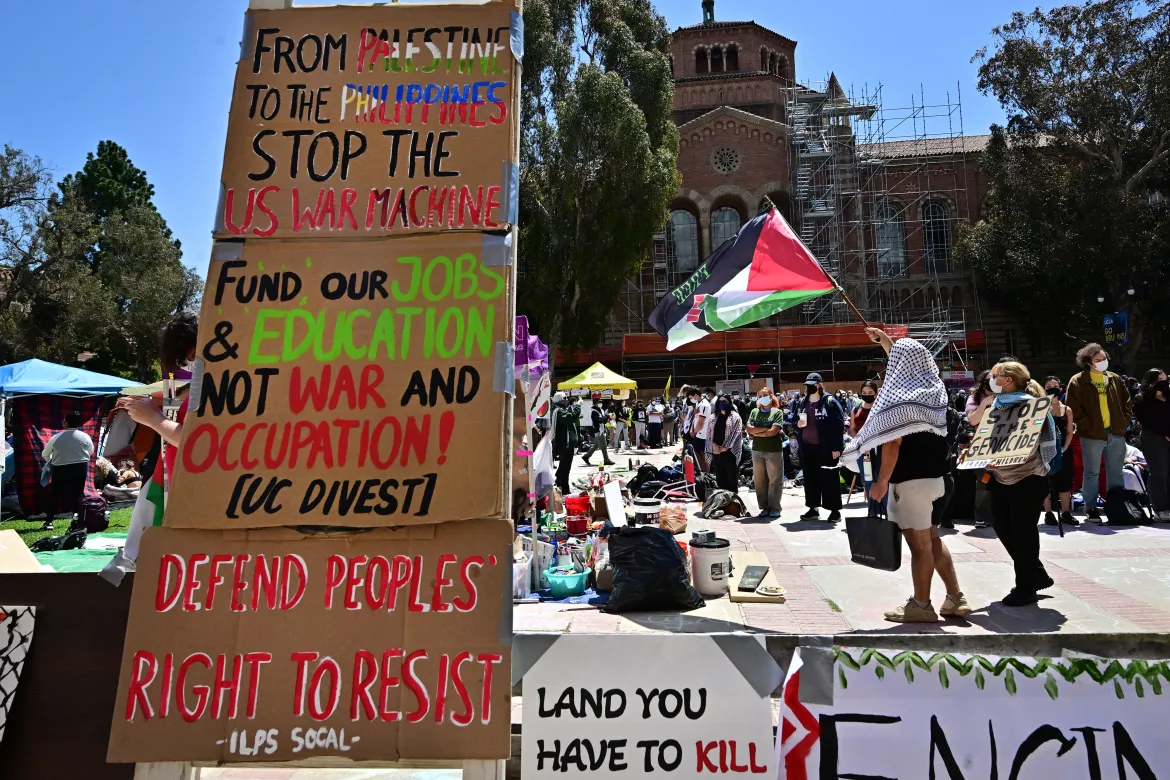By Maria Ravani,
It’s been a month since a wave of protests has taken universities all over the world by storm. Thousands of students spoke loudly about the crimes that are being committed against the Palestinian people in Gaza. And the world seems to be listening. Police response has been brutal, and violent incidents against protesters have been widely criticized on the Internet. Arrests of protesters, threats against the participants and so many more violent ways that many countries such as the USA, the Netherlands and others have tried to impose against the crowds in order to suppress the voices that accuse the West of being complicit to the crimes committed by Israel in Gaza Strip. And with the word “genocide” being used more often than not, the global community seems to be in shambles.
Especially in the USA, the momentum that was created by the protesters was really a sight to be seen. Ivy League universities such as Columbia and Harvard were closed down, and even staff spoke against the ties these universities hold, not only with Israeli companies, but with the state itself. The recent encampments and protests are being linked with the decades old “Boycott, Divestment and Sanctions” movement that for years now has tried to get people to address previous policies that Israel has implemented against Palestinians.
So, when the “elite” of universities –which are presumably the future of sciences and humankind in general– spoke up, what was the appropriate response by the administrative power? Some faculties seemed more open to rethink their ties with Israel and at least take into consideration the demands of their students. For instance, student bodies at Columbia, Harvard Law, Rutgers and American University decided against continuing their academic partnership with Israel. Other universities took a completely different approach, talking about antisemitism and the right to freedom that universities must protect. One has to wonder, though, how administrative freedom can be considered more important than an ongoing massacre in Gaza. The answer is not simple. And of course, the threat of antisemitic violence is real. The threat of violence though is very different when compared with the very real threat of war.
“You know what also died in Gaza? The myth of western humanity & democracy”
– written on a sign during a recent protest in the USA.

“Students for Justice in Palestine” and “Jewish Voice for Peace”, MIT’s “Coalition Against Apartheid” and University of Michigan’s “Tahrir Coalition” are only some of the few groups that helped organize these protests. However, the real force behind these collective incidents are plain people: students who may lose the semester (some of them may even be expelled from their universities), faculty members that were threatened with administrative sanctions, professors who were threatened to be silenced. And as political discourse seems to be so polarized, we witness once more how universities can become a fertile environment for political action and production of collective experience – knowledge.
“War does not determine who is right, only who is left.” – B. Russell
The demands that were loudly heard vary from university to university. Most of the demands though have to do with pressuring universities to publish their financial records about investments they have received by the Israeli government, and to stop doing business overall with the state of Israel and with companies that are economically connected to Israel. Especially in cases like MIT, students demand for their administration to put an end to every university project that is providing military knowledge or is related to military weapons manufacturers who are supplying arms to Israel. Overall, the demands mainly have to do with transparency and putting an end to indirect funding of this catastrophic war.

These responses to the war were not only limited to the USA. From Columbia to the University of Amsterdam and the University of Melbourne, students all over the world have taken a stand against this war. Maybe it is about time the state actors took a stand as well…
Some may call these past weeks the commencement of a student intifada. A few may see a correlation with the protests that occurred during May of 1968. In a sense, history may be repeating itself. One thing is for sure: there are sides in history, and only one in this case is the right one. And that side is the one that fights for human life, not the one that systematically eradicates it.
“There will be no ceasefire for the parents who lost their children,
for the children who became orphans,
for the thousands who lost their limbs,
lost their sanity.
There will be no ceasefire.
Theirs is a lifelong war…” (Poem by Sana Malim)
References
- Where pro-Palestinian university protests are happening around the world. CNN World. Available here
- Protests against Israel’s war in Gaza rattle colleges across the US. CNN Business. Available here
- America’s elite universities are bloated, complacent and illiberal. The Economist. Available here
- America’s elite universities are falling from grace, shaking its status as an educational superpower. The Economic Times. Available here
- Majority in U.S. Say Israel Has Valid Reasons for Fighting; Fewer Say the Same About Hamas. Pew Research Center. Available here
- In the US South, pro-Palestinians face crackdown on campus and in streets. Al Jazeera. Available here
- Dozens arrested in US campuses in another weekend of pro-Palestine protests. Al Jazeera. Available here
- What do pro-Palestinian student protesters at US universities want?. BBC News. Available here
- Some US colleges move graduation ceremonies amid pro-Palestinian protests. USA Today News. Available here
- US Universities: Respect Peaceful Protests for Palestinians. Human Rights Watch. Available here
- Major events in Pro-Palestinian protests at US universities. Reuters. Available here




